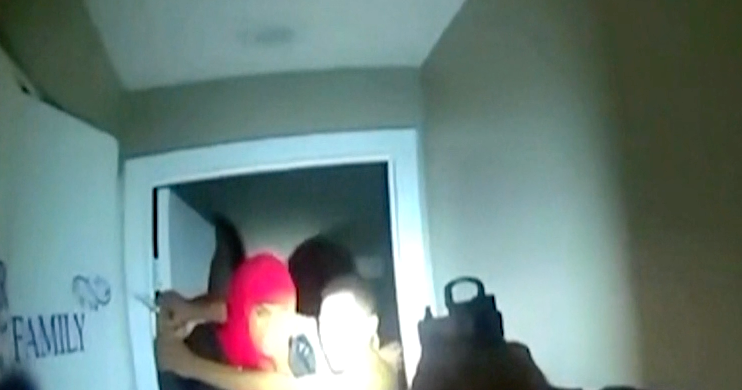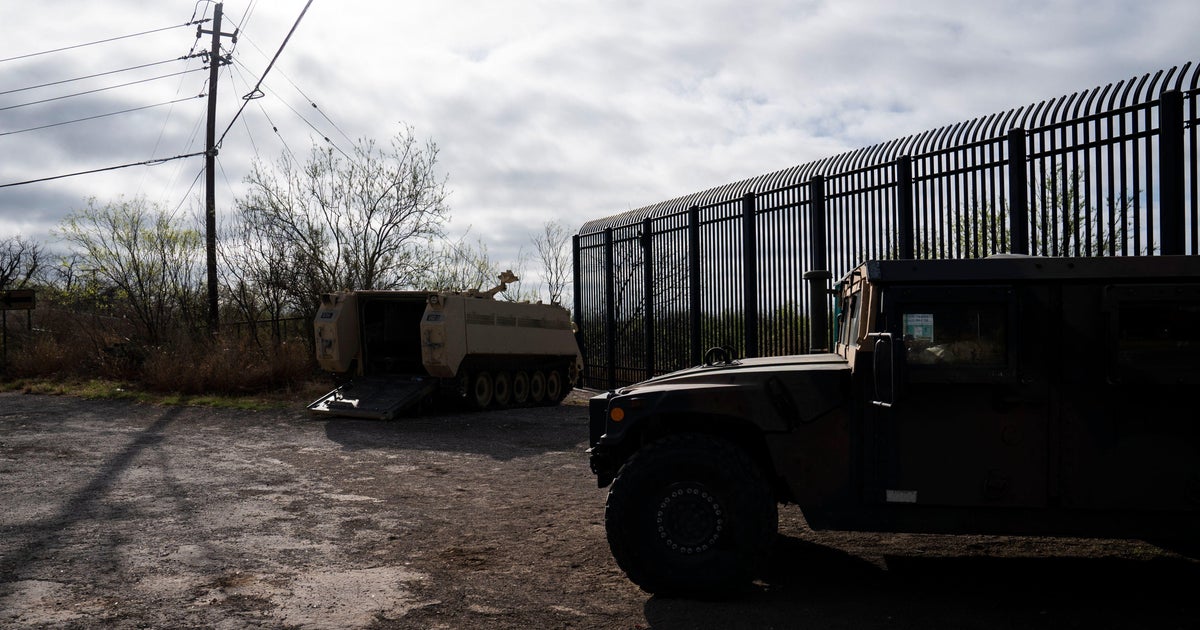The U.S. gave her refuge from gangs. But her 13-year-old daughter was expelled under Trump's new border policy
After refusing to give in to the demands of a ruthless gang and some of her fellow police officers in El Salvador, Magdalena fled to the U.S. in 2013 and was ultimately granted legal refuge. Years later, members of the same gang threatened her 13-year-old daughter, who journeyed north in search of the safe harbor her mother found on U.S. soil.
But Magdalena's daughter met a starkly different fate at America's southern border.
In April, someone who was apprehended by border officials alongside her daughter informed Magdalena that her child was receiving medical care after falling into the Rio Grande river. After calling government agencies, hospitals and advocacy groups for days, she managed to secure a brief phone call with her daughter, who was in a hotel waiting to be placed on a deportation flight back to El Salvador.
"She told me she did not want to go back, that she was scared," Magdalena, who asked for her name to be changed, told CBS News in Spanish.
She hoped the deportation could be stopped if officials knew that her daughter could be harmed by gang members. But her daughter was not allowed to request asylum. Instead, she was expelled to El Salvador hours after the phone call.
"I didn't know what was going to happen to my daughter," Magdalena said, recounting the moments after the call. "She was going back to a place she fled to seek asylum, refuge and safety in this country. And she was sent to that very same place to run the same risk."
Magdalena's 13-year-old daughter is one of hundreds of migrant children the U.S. has expelled since late March under an emergency order from the Centers for Disease Control and Prevention (CDC). The Trump administration says the order is necessary to prevent potentially infected migrants from spreading the coronavirus inside the U.S. and overwhelming public health resources.
The teenage girl is also a plaintiff in one of the first court challenges against the emergency border directive, which immigration authorities have used to carry out more than 21,000 expulsions of unauthorized migrant adults, families with children and unaccompanied minors. Identified by the initials G.Y.J.P. in court papers, her experience is chronicled in a lawsuit filed in federal court on Wednesday by the Texas Civil Rights Project and the American Civil Liberties Union, which argues the expulsion policy violates several federal laws, including one designed to shield minors from violence and exploitation.
Since the CDC order can be used to expel asylum-seekers and children, it has drawn criticism from human rights groups and immigrant advocates. Critics have accused the administration of further restricting humanitarian programs for border-crossers and using the pandemic as a justification.
"They are placing people back in countries where they are being persecuted, where they are being harmed, where they are fleeing for their lives. And they are doing this to children who arrive at our borders without parents — and that's what they did to our client," said Karla Vargas, an attorney for the Texas Civil Rights Project who is representing Magdalena and her daughter.
"Completely unjust"
Magdalena said she is a firm believer in American democracy and its laws.
In 2018, a U.S. immigration judge granted her a protection from deportation known as "withholding of removal" after finding she was "more likely than not" to face persecution if returned to El Salvador — a higher threshold than is needed to obtain asylum. Though the status does not offer a pathway to U.S. citizenship, it allows beneficiaries to live and work in the U.S. legally.
But Magdalena said her daughter's rapid expulsion in April surprised her. "It was very difficult because I was fully trusting the laws of this country, especially when they relate to a girl, a child. It was a disappointment to see that the rights of my daughter were not respected."
"I think this policy is completely unjust," Magdalena said. "I think they should first evaluate why these children are coming. I think no child wants to leave her country. No parent wants their child to undertake such a journey. But there's a bigger danger where they are fleeing."
For years, a patchwork of legal safeguards has allowed most unaccompanied migrant children to seek humanitarian protections to stop their deportation while in the custody of the Office of Refugee Resettlement, which connects them with child advocates and lawyers. U.S. law and a longstanding court settlement require the federal refugee agency to continuously pursue the release of children to family members in the U.S. or other sponsors.
But the Department of Homeland Security has argued that the emergency CDC order allows its officers to suspend these protections, which the Trump administration has described as "loopholes" that incentivize families and unaccompanied minors from Central America to travel to the U.S.
"They have not been able to get rid of these protections for children through the formal ways, through the appropriate ways," Vargas told CBS News. "So they are now using the coronavirus pandemic to do that."
Vargas said her underage client is in imminent danger in El Salvador. "Her mother was a police officer and was not someone who wanted to align herself or in any way be associated with any of the gangs or any type of corrupt activity. And unfortunately, her daughter, at some point, also befell the same circumstances and the same harm," she added. "These are situations where there is absolutely no safety for people in their home countries."
Through the lawsuit filed this week, Vargas' group and the ACLU are asking the U.S. District Court for the District of Columbia to declare the 13-year-old girl's expulsion unlawful. They are also demanding that the government allow the girl to return to the U.S. so she can seek refuge alongside her mother, who lives in New York.
Magdalena is hopeful, but fears for her daughter's safety in El Salvador, where she is hiding.
"My daughter is a girl with dreams, goals, with a drive to keep pushing forward, to study," she said. "But she can't do that in my country because of the danger there."




